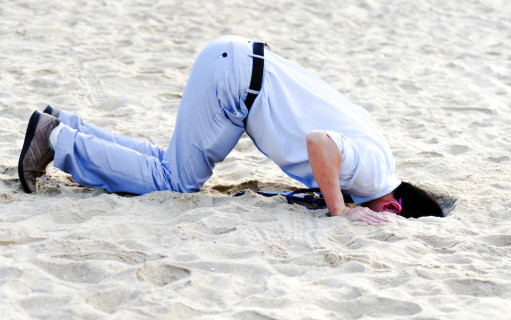 Denial is a familiar concept to anyone who has struggled with addiction or loved an addict. Whether the addiction is to drugs, alcohol or a behavior like sex, denial is an important, destructive and powerful component of the disease. Denial is a distorted way of thinking. It is a set of ideas, beliefs and ways of rationalizing behavior that gets bigger and stronger over time. For a sex addict, denial is a part of the addiction, it occurs during treatment, and it haunts you during relapses. Healing from sex addiction is all about battling the powerful force of denial.
Denial is a familiar concept to anyone who has struggled with addiction or loved an addict. Whether the addiction is to drugs, alcohol or a behavior like sex, denial is an important, destructive and powerful component of the disease. Denial is a distorted way of thinking. It is a set of ideas, beliefs and ways of rationalizing behavior that gets bigger and stronger over time. For a sex addict, denial is a part of the addiction, it occurs during treatment, and it haunts you during relapses. Healing from sex addiction is all about battling the powerful force of denial.
Addiction and Denial
To maintain a sex addiction requires denial. One of the hallmarks of any type of addiction is that it causes negative consequences in your life, but you do it anyway. Your sexual behaviors may have caused you to lose relationships, to lose money, to feel bad about yourself or even to have legal problems. To continue with your sexual habits in the face of this requires having a set of beliefs that supports them. This is called denial.
To someone on the outside looking in on your life, your belief system of denial seems ludicrous. To you, it seems rational. Denial takes several forms. For instance, you may rationalize your sexual behaviors by telling yourself they are normal and that you’re not hurting anyone or that you just have a high sex drive. You might also put the blame on others by claiming that people judge you unfairly for your sexual behaviors or that your partner doesn’t satisfy you. Minimizing is another denial strategy. You minimize your problem by claiming that you’re not the only one engaging in these kinds of behaviors or that you haven’t gone too far.
Denial in Recovery
To get into recovery for sex addiction requires moving past denial, admitting to having a problem. You can do this by listening to others, but more importantly, by listening to yourself. Push aside your rationalizations and minimizations and listen to what you really think and feel. Really analyze what motivates you to keep doing what you’re doing. Ask yourself if it is rational. What about your thought patterns is irrational?
Getting help for sex addiction is not going to be your last dance with denial. Many sex addicts move back into those comfortable thought patterns that will tell them to quit rehab and go back to old habits. For instance, you might tell yourself that rehab just isn’t for you, that it’s not working, that you are too far gone to be helped or even that sex addiction isn’t real. You’ll have these thoughts in early recovery, but if you can move past them, you can get better.
Denial and Relapse
Once you have completed recovery, you might think that denial is gone from your life. Unfortunately, many sex addicts relapse, and you should be aware of it as a possibility. The culprit behind a relapse? Denial, of course. It can be easy to slip into these old thought patterns even when you have received treatment. There are ways you can avoid it, though. For instance, avoid using drugs or alcohol. Mind-altering substances can change the way you think and help you rationalize bad choices. Stress and uncomfortable or new situations can also lead you back to old habits. Avoid these situations, but also learn to cope with them. Keep people around you who care about you and know your struggles. Turn to your support community when denial starts to creep back in.
The post The Power of Denial in Sex Addiction appeared first on Sex Addiction Treatment Center | Porn Addiction Rehab | Sexual Recovery | Los Angeles CA.


















